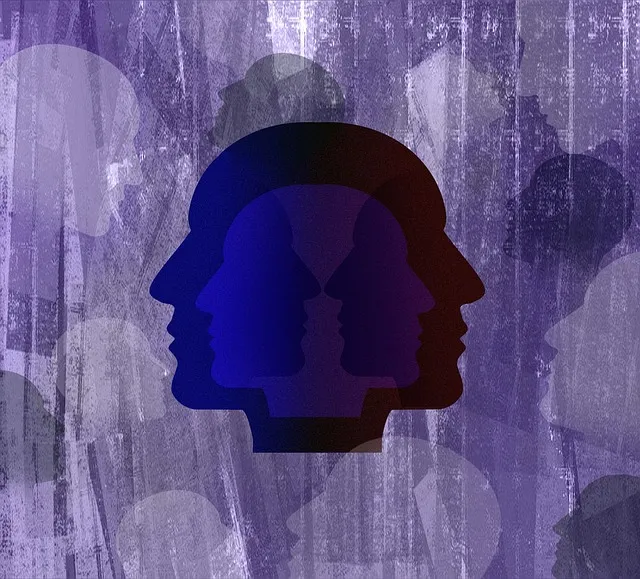In today's digital era, mental wellness apps are gaining prominence as essential tools for improving well-being. With increasing demand for accessible mental health services, especially in urban areas like Denver, apps like those being explored by Kaiser offer discreet and convenient support for stress, anxiety, and building resilience. These apps aim to destigmatize mental illness through personalized experiences, catering to diverse needs, and reaching individuals who might avoid traditional therapy. Denver's Kaiser exploring inpatient mental health care highlights this growing trend. Key features include emotional intelligence tools, anxiety relief techniques, and compassion cultivation practices, with regular updates based on user feedback. The contrast between Denver's specialized trauma support and holistic healing programs and Kaiser's standardized evidence-based treatments reflects diverse approaches to patient care. A comprehensive app combines psychology expertise, software development, and UX design for therapeutic features like meditation, journaling, and online therapy, while community outreach fosters support networks. Global popularity of digital mental health apps, accelerated by COVID-19, offers accessible care with AI/ML personalization for stress, anxiety, and mood tracking, transforming digital therapy into a powerful tool for holistic well-being.
In today’s digital age, mental wellness app development has emerged as a crucial tool for managing mental health. With increasing demand for accessible and personalized support, understanding the key features of effective apps is essential. This article explores the need for mental wellness apps, comparing Denver’s and Kaiser’s inpatient services, delving into the development process, and highlighting market trends. By examining these aspects, we gain insights into how technology can revolutionize mental health care, potentially offering solutions beyond traditional services like those provided by Denver or Kaiser.
- Understanding the Need for Mental Wellness Apps
- Key Features of Effective Mental Health Applications
- Denver vs. Kaiser: Comparing Inpatient Mental Health Services
- Development Process: Building a Comprehensive Mental Wellness App
- Market Trends and Future Prospects in Digital Mental Health
Understanding the Need for Mental Wellness Apps

In today’s fast-paced world, mental wellness is a critical aspect of overall health, yet many individuals struggle to access adequate support. This is where mental wellness apps step in as valuable tools. With the rise of digital solutions, there is a growing need for innovative applications focused on improving mental well-being. One such example is the potential for Denver-based Kaiser to expand its services with inpatient mental health care, addressing the urgent requirement for accessible treatment.
Mental wellness apps offer discrete and convenient support, catering to diverse needs. They can provide resources for stress management, anxiety relief, and even serve as platforms for building resilience and confidence. By utilizing technology, these applications aim to reduce the stigma surrounding mental illness, encouraging open conversations and promoting early intervention. With a focus on personalized experiences, they have the potential to reach a wide audience, especially those who may not typically seek traditional therapy.
Key Features of Effective Mental Health Applications

Mental wellness apps have gained significant traction, offering accessible support for various mental health concerns. When developing such applications, incorporating key features that cater to users’ diverse needs is essential. One prominent example is the integration of emotional intelligence tools, which enable users to recognize and manage their emotions effectively. These tools often include mood tracking, sentiment analysis, and personalized coping strategies tailored to individual preferences.
Additionally, features focused on anxiety relief are highly sought after. Techniques such as mindfulness meditation, breathing exercises, and cognitive-behavioral therapy (CBT) modules have proven beneficial in managing anxiety. Encouraging users to engage in regular practice through gamification or rewards systems can enhance adherence. Compassion cultivation practices, promoting self-compassion and empathy, are another valuable component, fostering a sense of community and reducing stigma associated with mental health issues. These features, combined with regular updates and user feedback, ensure that apps like Denver does Kaiser’s inpatient mental health services remain relevant and effective in the digital age.
Denver vs. Kaiser: Comparing Inpatient Mental Health Services

When comparing Denver’s mental health care system to that of Kaiser, a notable difference lies in their respective approaches to inpatient services. Denver, known for its diverse and innovative mental wellness practices, offers a range of specialized programs tailored to various needs. This includes intensive care units focused on trauma support services, catering to individuals struggling with complex psychological issues. In contrast, Kaiser’s inpatient mental health facilities typically follow a more standardized model, often emphasizing evidence-based treatments and medication management within a structured environment.
While both systems aim for patient recovery, Denver’s approach leans towards fostering compassion cultivation practices and holistic healing, considering the social and emotional aspects of mental wellness. This difference underscores the varied strategies employed by different institutions in their Mental Health Policy Analysis and Advocacy efforts, ultimately shaping the quality and accessibility of care available to those seeking treatment for serious mental health conditions.
Development Process: Building a Comprehensive Mental Wellness App

The development process for a comprehensive mental wellness app involves several crucial steps, mirroring the intricate nature of human emotional well-being. It begins with an in-depth understanding of the target audience—a diverse range of users seeking support for their mental health journeys. This step is essential to ensure the app caters to various needs, from stress management and anxiety relief to mood tracking and coping skills development.
Designing such an app requires a multidisciplinary approach. Psychology experts, software developers, and user experience (UX) designers collaborate to create an interface that is both therapeutic and engaging. Features might include personalized meditation sessions, mood journaling tools, access to online therapy, or even games promoting emotional intelligence. Integrating community outreach program implementations can foster support networks, offering users a sense of belonging and encouraging peer-to-peer assistance. For instance, Denver-based Kaiser’s inpatient mental health services could be leveraged as a resource within the app, providing users with direct access to professional care when needed, while empowering them with coping skills development through digital tools.
Market Trends and Future Prospects in Digital Mental Health

The digital mental health space is experiencing a significant boom, with innovative solutions gaining traction globally. Apps targeting various aspects of mental wellness are becoming increasingly popular, addressing issues such as stress management, anxiety relief, and mood tracking. This shift towards digital therapy is not just a trend; it’s a necessary evolution in healthcare accessibility. The COVID-19 pandemic has accelerated this movement, with many turning to virtual support systems for their psychological well-being.
Looking ahead, the future of mental wellness apps promises personalized, accessible care, especially with advancements in artificial intelligence and machine learning. These technologies can cater to individual needs, offering tailored interventions and resources. For instance, an app could utilize natural language processing to engage users in therapeutic conversations or provide mindfulness exercises based on their reported moods. Moreover, as awareness about mental health increases, there is a growing demand for apps that not only treat symptoms but also educate users about mental health, promoting empathy within communities, and fostering resilience.
Mental wellness apps are transforming access to care, especially with competing services like Denver’s and Kaiser’s inpatient mental health offerings. By understanding user needs, incorporating essential features, and navigating development processes, creators can contribute to a thriving digital mental health market. Keeping pace with trends and learning from comparators like Denver and Kaiser ensures innovative solutions that address growing demand for accessible, effective support.


